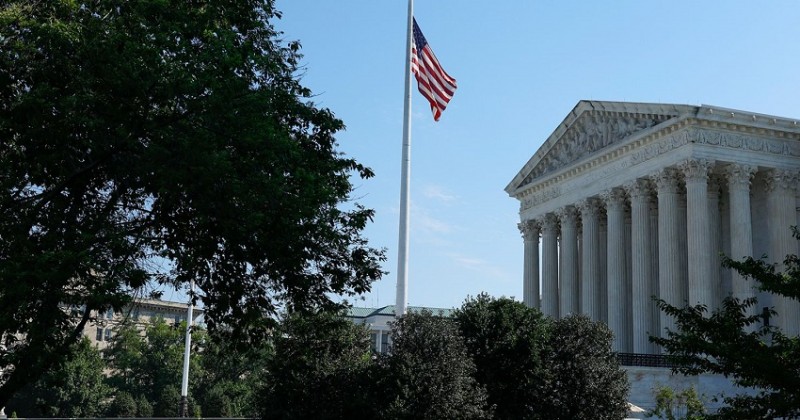
WASHINGTON: On Friday, the U.S. Supreme Court decided not to lift lower court injunctions blocking a significant portion of a new rule intended to protect LGBT students from discrimination based on gender identity. This decision affects 10 states led by Republican governors who had challenged the rule.
The court's ruling means that the U.S. Education Department cannot enforce the updated rule in Tennessee, Louisiana, and eight other states for now. The rule, announced in April and scheduled to take effect on August 1, expands protections under Title IX, a law designed to prevent sex discrimination in federally funded education programs.
The Biden administration had requested an emergency intervention to enforce a key provision that clarifies that discrimination "on the basis of sex" includes both sexual orientation and gender identity. However, the Supreme Court declined to lift the injunctions that had blocked the rule in several states.
Louisiana Attorney General Liz Murrill criticized the rule, calling it a federal overreach that undermines Title IX. She argued that the rule imposes excessive changes on schools, affecting private spaces and requiring compliance with what she described as an "extreme gender ideology."
The plaintiffs, which include several states and school boards, argued that the rule would compel schools to permit transgender students to use restrooms and locker rooms aligned with their gender identity and to use their preferred pronouns. They believe the rule goes beyond the original intent of Title IX, which was established over 50 years ago to address sex discrimination in education.
Despite setbacks in some states, the Biden administration had a partial victory on July 30 when a federal judge in Alabama allowed the rule to proceed in Alabama, Florida, Georgia, and South Carolina. However, this decision was quickly stayed by the 11th U.S. Circuit Court of Appeals.
The new rule aims to address various aspects of sex discrimination under Title IX, including protections for LGBT individuals and enhancements for pregnant students, parents, and guardians. The administration argues that applying Title IX to LGBT students aligns with the Supreme Court's 2020 decision that Title VII, a similar law, protects gay and transgender workers.
However, U.S. Judges Terry Doughty and Danny Reeves ruled that Title IX should only be interpreted to include "biological" males and females, not considering gender identity. The Biden administration has agreed to keep two contested provisions related to restrooms and pronouns blocked while the legal challenges continue.
The Supreme Court will also review a case involving a Tennessee ban on gender-affirming medical care for transgender minors when its next term starts in October.
Heated Debate Erupts Over Transgender Athletes in 2024 Olympics
Israel-Gaza Conflict Intensifies: Regional Tensions Rise Amid Escalating Violence'